“I have not come to judge you or to lecture you,” the Pope told bishops in Washington during last week’s visit to the US before doing precisely that.
His rebuke was implied rather than direct but his message was clear: “Harsh and divisive language does not befit the tongue of a pastor, it has no place in his heart. Although it may momentarily seem to win the day, on the enduring allure of goodness and love remains truly convincing.”
It was difficult not to see in that a gentle but firm reprimand to those American bishops who have taken a confrontational stance on “culture wars” issues like abortion and gay marriage: Pope Francis, after all, described the Church as too “obsessed” in his first interview as pontiff.
This is a pope who has switched the focus of concern from sex to money as well as urging bishops to refocus on their pastoral mission.
But, as ever, Pope Francis spoke in two ways – through words but also through example.
He put into practice his own advice by adopting an unthreatening tone in everything he said in the United States. He was challenging but his speeches were studded with terms like encounter, dialogue, cooperation and consensus.
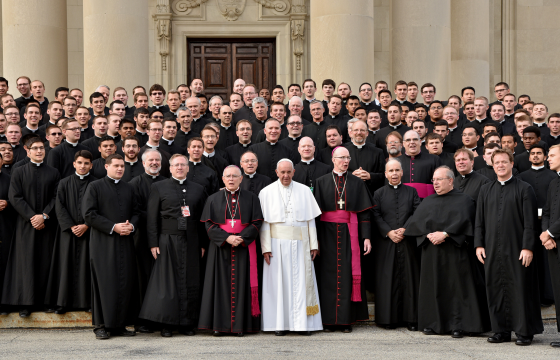 We are family: Pope Francis poses with the US bishops after speaking to them in Washington (PA)
We are family: Pope Francis poses with the US bishops after speaking to them in Washington (PA)
He constantly accentuated the positive while quietly challenging the negative.
But his message was uncompromising. Climate change was right at the top of his first speech when he got off the plane. To Congress he had a clear message on global warming, social inequality and poverty, the death penalty, the arms trade and the need to welcome refugees and economic migrants alike.
"The Pope spoke in a voice which was that of someone who was conscious of being a guest in someone else's home"
Yet the Pope spoke in a voice which was that of someone who was conscious of being a guest in someone else's home. Very deftly the Argentinian Pope began his address to Congress by talking of “we” Americans. Then he invited his listeners to dialogue and to examine their conscience.
In Congress he cited four great Americans from history and then invited modern America to live up to the challenge. At the UN he demanded action and not fine international decorations. Throughout he challenged without wagging his finger.
He will quite likely do the same at the Synod of Bishops in Rome next week.
At the end of the fairly heated debate during and round the last Synod a year ago, Francis made a concluding speech in which he warned traditionalists and conservatives against zealous literalism and “hostile rigidity” – but also cautioned progressives and liberals against “destructive do-goodism” and a “misguided mercy” which wants to bind up wounds without first treating them.
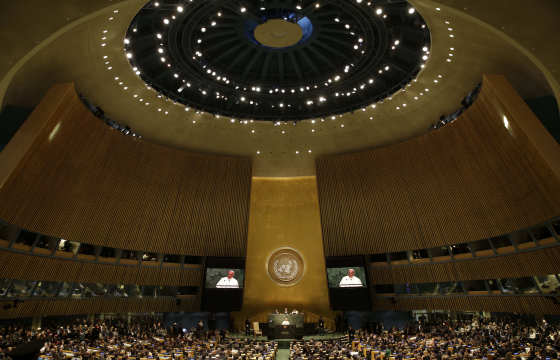 The Pope's language to the UN reframed the environment as a living entity entitled to equivalent rights (PA)
The Pope's language to the UN reframed the environment as a living entity entitled to equivalent rights (PA)
The equipoise of the speech won him a heartfelt standing ovation from the vast majority of synod members.
Again, on the eve of next week’s Synod the Pope once again chose his words carefully but again the underlying message was clear. Francis, in his final address in the US, gently urged the Church to stop fighting old battles and fearing the future.
“Christians are not immune to the changes of their times,” he said, warning the bishops that their response should not be defensive: “Jesus encountered hostility from people who did not accept what he said and did. For them, his openness to the honest and sincere faith of many men and women who were not part of God’s chosen people seemed intolerable.
ALL THE LATEST FROM THE SYNOD ON THE FAMILY...
Synod's division bell rings for the devolution of power - Christopher Lamb
Will the synod fathers be surprised by the Spirit? - Christopher Lamb
Pope: divorced and remarrieds not the only subject for synod
Synod will not change teaching on communion for divorcees - Christopher Lamb
Synod must not see family as the problem - James Roberts
“The disciples, for their part, acted in good faith. But the temptation to be scandalised by the freedom of God, who sends rain on the righteous and the unrighteous alike, bypassing bureaucracy, officialdom and inner circles, threatens the authenticity of faith. Hence it must be vigorously rejected.”
Jesus rebuked those closest to him for being so narrow, Pope Francis noted and called on the Church to “overcome the scandal of a narrow, petty love, closed in on itself, impatient of others!”.
Francis has sent other revealing signals. With the inclusion of Cardinal Wilfrid Fox Napier aside, he has appointed the same team to run next week’s Synod which drafted the controversial interim report halfway through the last Synod criticised by some bishops as tendentious.
The arch-conservative Cardinal Raymond Burke, despite being appointed as a member of the Congregation for the Causes of Saints, has been removed from Synod membership.
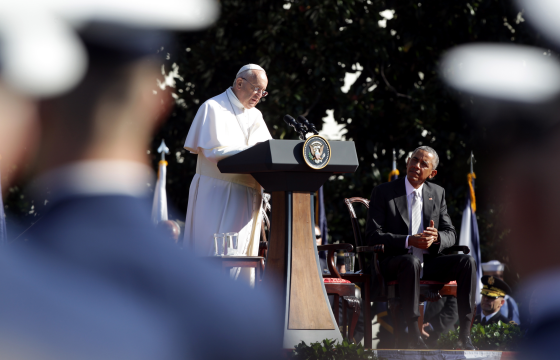 Pope Francis used his speech at the White House to applaud President Obama's climate change directives while gently reminding the US it was not enough (PA)
Pope Francis used his speech at the White House to applaud President Obama's climate change directives while gently reminding the US it was not enough (PA)
The Pope has hand-picked additional Synod Fathers some of whom – like retired Cardinals Walter Kasper and Godfried Danneels, and Archbishop Blase Cupich of Chicago – share his own reconciliatory views on the treatment of the remarried and gays.
"Christians are not immune to the changes of their times"
There is a tension at the heart of Pope Francis’s attitude to the Synod. On the one hand he has set out to reinvigorate it as a place of real debate in an attempt to elevate its status as part of the Church’s decision-making process.
On the other, as I reveal in my book Pope Francis: the Struggle for the Soul of Catholicism, it is clear from talking to individuals whom the Pope has privately consulted on the issue of the remarried taking Communion that the Pope wants the ban lifted.
In the book I conclude that, faced with a choice between the two, Pope Francis would give priority to moving away from a monarchical model of papacy to something more collegial.
But what seems to be becoming clear is that the Pope hopes he will not have to make that choice.
As with his bold gesture of clemency over the forgiveness of abortion during the Year of Mercy, Francis is hoping to find a way in which they Church can display a kinder face without altering doctrine. He wants the Church to develop greater emotional intelligence.
The scene is set for an interesting few weeks.
Paul Vallely’s new book is Pope Francis: the Struggle for the Soul of Catholicism published by Bloomsbury. He will deliver the 2015 Tablet lecture on 13th November with the title: “Pope Francis and the Synod: Changing the way the Church makes its decisions”
KEEP UP TO DATE ON TWITTER...
Follow all the latest news and events from the Catholic world via The Tablet's Twitter feed @the_tablet

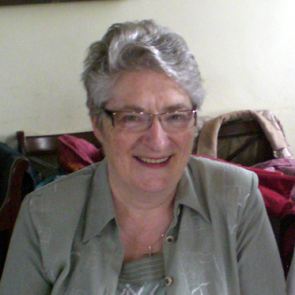
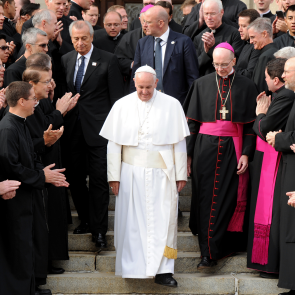

 Loading ...
Loading ...
What do you think?
You can post as a subscriber user ...
User comments (3)
Like others I remain very confused.
For a Synod on the "Family", I have yet to see in the photos above or elsewhere any hint of a "family" let alone a "woman" or children except in Royal Commissions into Child abuse by Clerics and other power people.
Have we never got over the Church of the Roman Empire and its Princes (not Princesses) with their focus on POWER and control over VOTING and SUBJECT MATTER.
I must be misunderstanding the Gospel or what Jesus was on about?
I feel confused by what is happening to the Church, and now in the synod.
Just two years ago in October, our NZ cardinal stated the Church has nothing to do with the family. N
ow he's in the inner circle of the synod.
I also feel confused by the closing statement of the Pope's introduction to the synod. I wonder what he really means, in reality.
It is difficult not to wonder how the process of placing sympathisers in positions of influence and excluding those of a contrary view described here by Paul Vallely differs from that of any 20th century political party; from Tommy Sheridan's Scottish Militant Labour, through Shirley William's SDP on to Jean Marie Le Pen's Front National.
As I had just begun secondary school in the 1960s, I was not aware of the build up to the then mould breaking Ecumenical Council, but I wonder in hindsight, was Vatican II like this too?